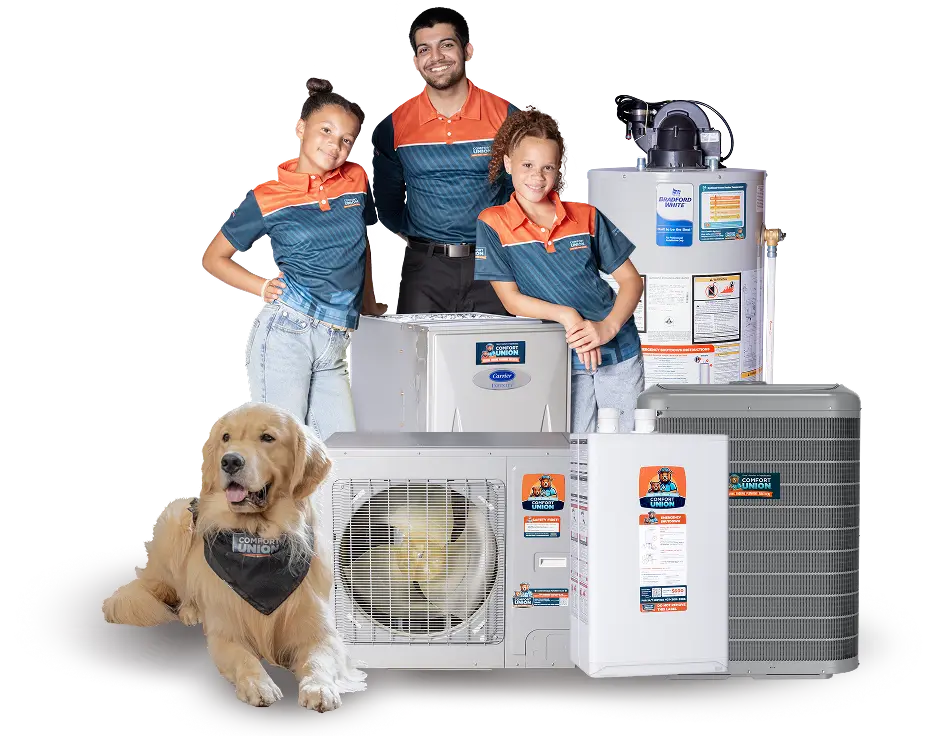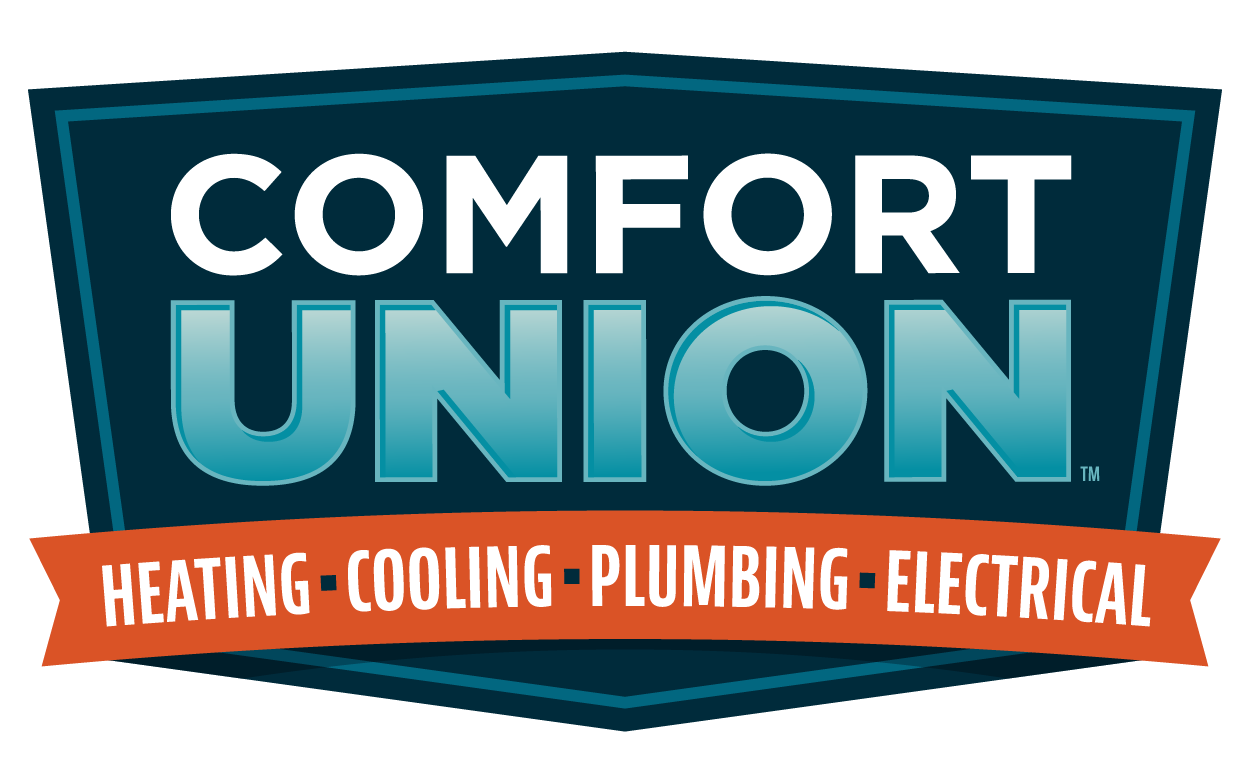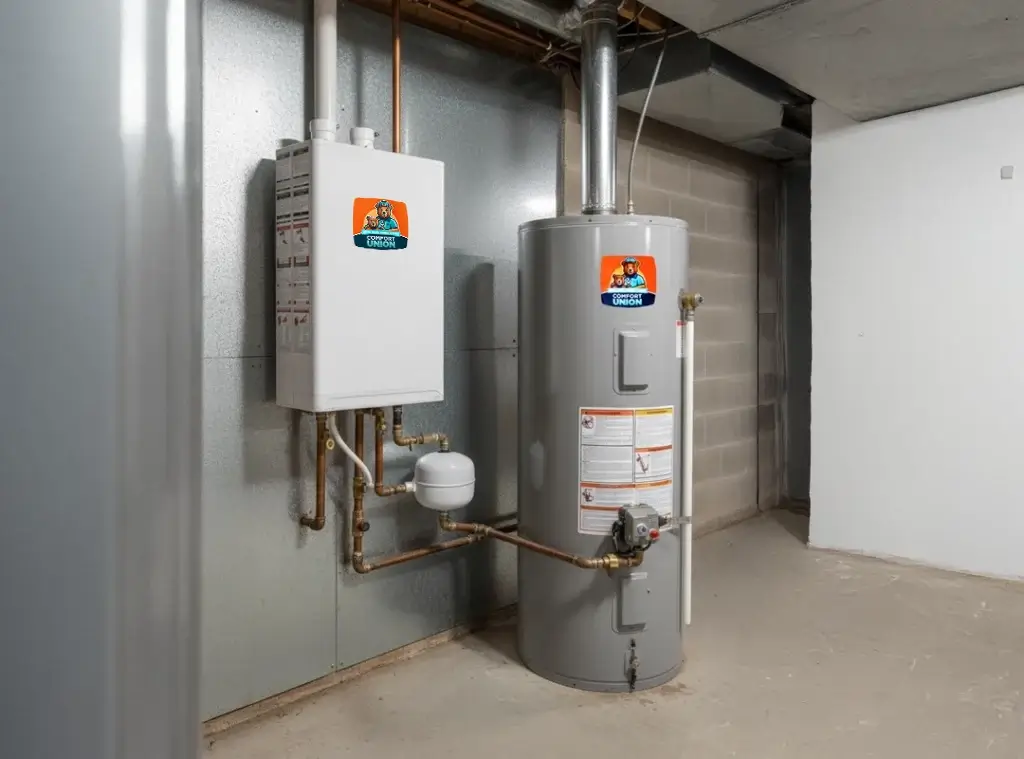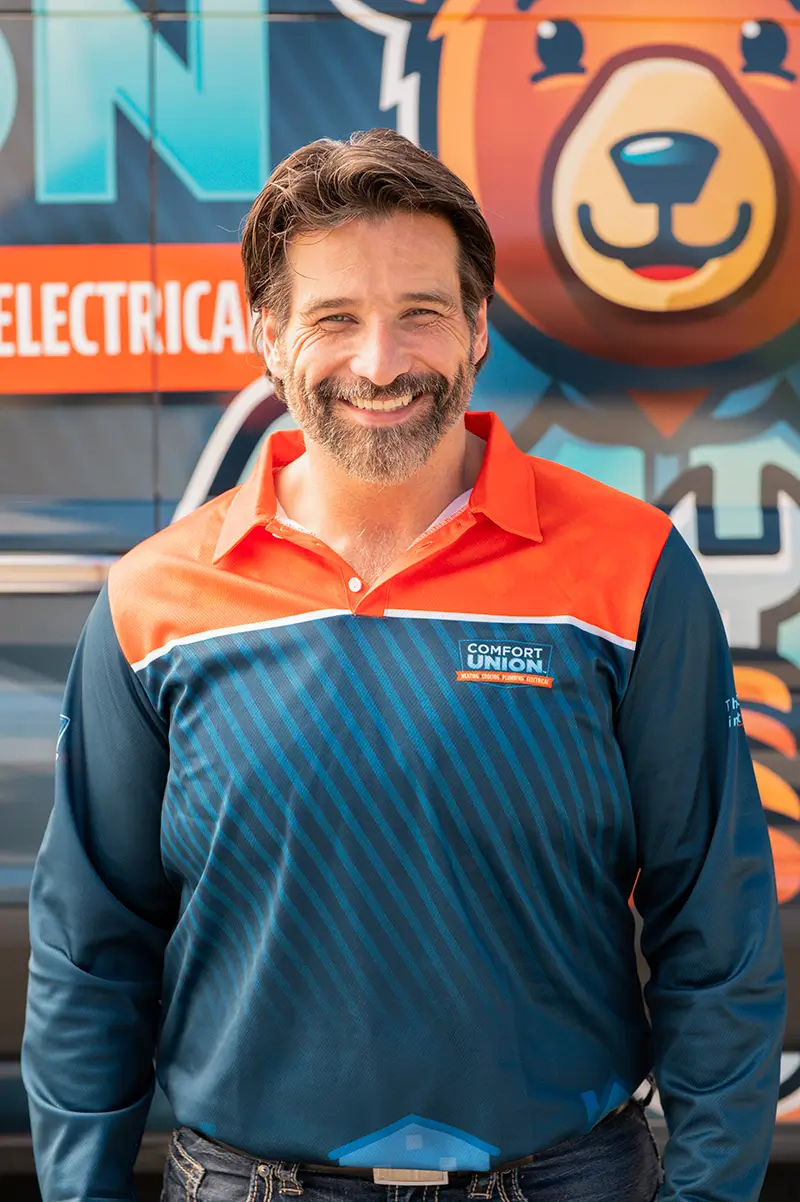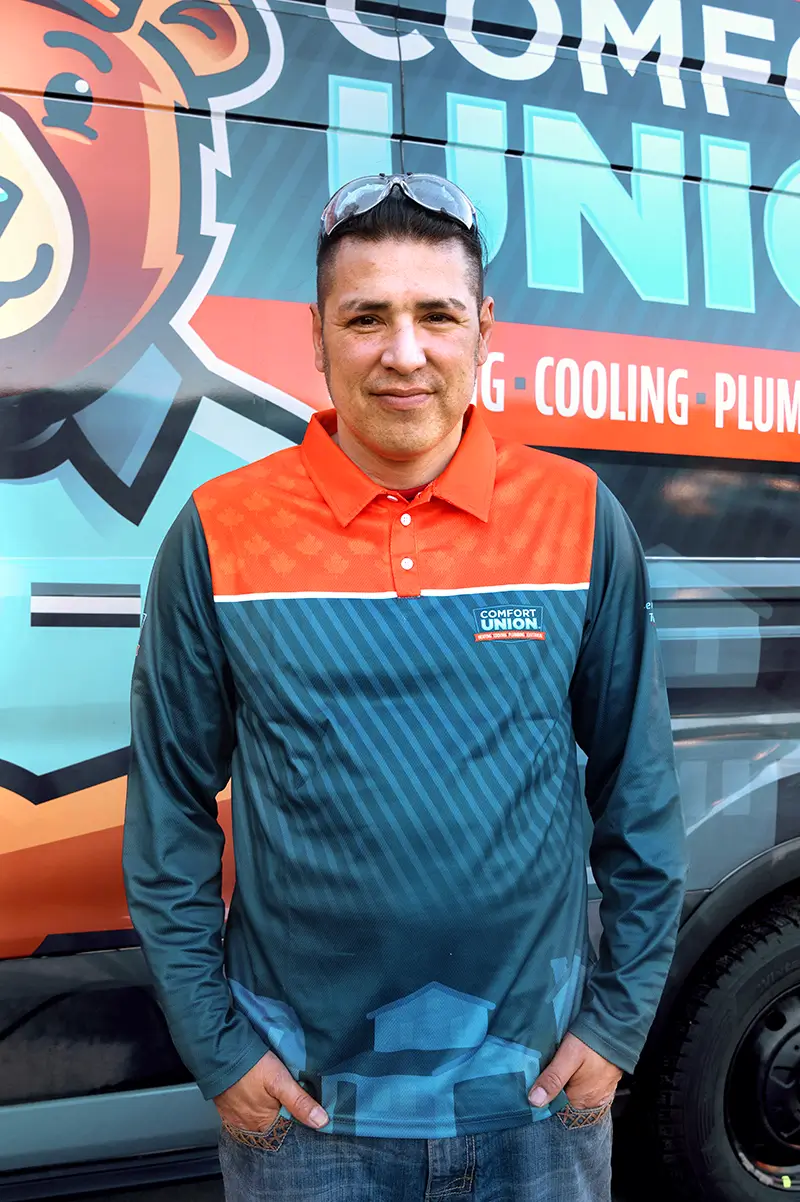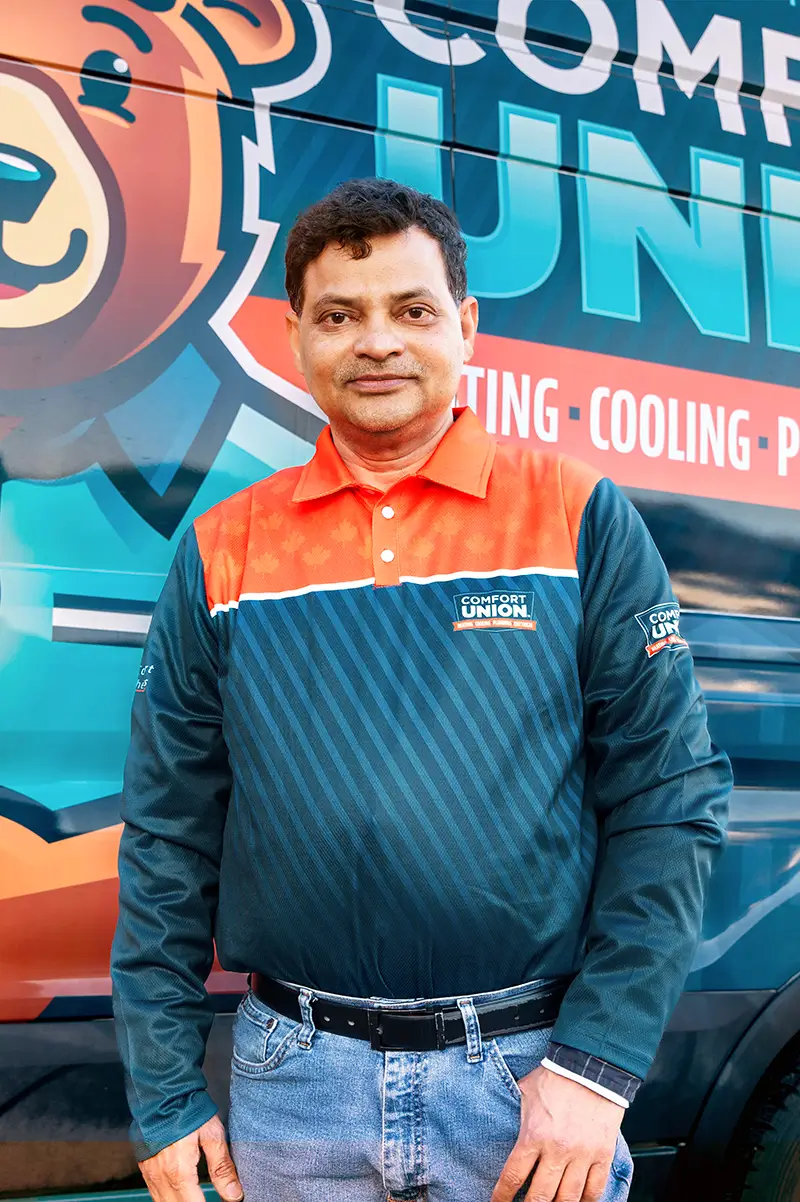If you’ve ever been halfway through a shower when the hot water suddenly runs out, you know how crucial a reliable water heater is in a Calgary winter. Choosing between a tankless and traditional tank water heater can feel confusing, especially when both promise “efficiency” and “endless hot water.” But the best choice depends on your home, family size, and local conditions.
In this guide, we’ll walk you through how each system works, the pros and cons in Calgary’s unique climate, and how to choose the one that keeps your showers hot and your bills low.
Need a New Tankless Water Heater?
Why This Decision Matters in Calgary
Calgary’s winters are no joke. With temperatures often dipping below -25°C, your water heater works overtime just to deliver comfortably warm water. Because of the cold incoming water and longer heating seasons, efficiency, durability, and installation quality matter even more here than in milder regions.
Choosing the right system affects not just your comfort but also your long-term costs, from energy bills to repair expenses. Let’s take a closer look at how each type performs under Calgary conditions.
How Do Tank and Tankless Water Heaters Work?
A traditional tank water heater stores and heats a large amount of water (typically 40–60 gallons) so it’s ready whenever you need it. The downside? Once the tank empties, you’ll have to wait for it to refill and reheat.
A tankless water heater, often called an “on-demand” system, skips the tank entirely. It heats water instantly as it flows through the unit, so you’ll never “run out”, but you can overload it if too many showers and taps run at once.
In Calgary homes, both systems can use natural gas or electricity. However, due to the city’s energy mix and gas infrastructure, most homeowners choose gas-powered systems for their efficiency and reliability during cold spells.
Tank vs Tankless: The Key Comparisons for Calgary Homes

A traditional tank water heater is less expensive upfront, typically between $1,500 and $2,500 installed in Calgary. Tankless systems, on the other hand, often cost $3,000 to $4,500 or more, depending on the model and whether your home needs new venting or gas line upgrades.
If you’re switching from a tank to tankless, expect extra work to retrofit your existing setup. However, the investment often pays off in efficiency and space savings over time. Also note that the brand will also affect your installation and cost.
Energy Efficiency and Operating Cost
Calgary homeowners appreciate efficiency during long heating seasons. A tankless water heater wins here because it doesn’t waste energy keeping water hot all day. That means lower monthly bills, especially for smaller households or homes where hot water use is staggered.
Tank heaters, however, aren’t inefficient by default. Newer models with better insulation and high-efficiency burners can still perform well, though they experience standby heat loss, especially in basements that stay cool all winter.
Hot Water Supply and Household Demand
If you have a large family that often showers, does laundry, and runs the dishwasher at the same time, a tank water heater might be your better bet. The stored hot water ensures consistent delivery during heavy use.
A tankless unit, however, is perfect for smaller families or those who value endless hot water for longer showers or back-to-back use. The key is proper sizing; a smaller tankless unit can struggle to keep up if multiple taps are on at once, particularly with Calgary’s cold incoming water.
Space, Lifespan, and Maintenance
Calgary homeowners living in infills or condos love the space savings of tankless models. They mount on walls and free up floor space, while traditional tanks can take up significant utility room area.
A typical tank system lasts about 10–15 years, while a tankless unit can last 20+ years with regular maintenance. However, Calgary’s hard water means both types need upkeep. The tanks need annual flushing, and tankless systems require descaling to prevent mineral buildup.
Suitability for Calgary’s Climate
Calgary’s high altitude, dry air, and fluctuating temperatures put added pressure on heating systems. Tankless models handle this well if installed with proper venting and cold-weather freeze protection, while tanks are generally more forgiving in extreme cold but less efficient.
If your home has limited insulation or older ductwork, a tank model might perform more consistently. For newer builds or energy-efficient homes, tankless systems are an excellent long-term upgrade.
How to Decide Which System Fits Your Calgary Home
When choosing between tank and tankless, think about your lifestyle, home size, and budget.
If you live in a large family home in areas like Signal Hill or Mahogany with multiple bathrooms, a high-capacity tank system may provide the steady hot water you need.
If you’re in a modern infill or smaller space in downtown Calgary or Evanston, a compact tankless system can deliver efficiency and save room.
Budget also plays a role, because a tank system costs less to install, while tankless units save more on energy bills over time. It’s a balance between upfront cost and long-term payoff.
Typical Cost Ranges and Payback in Calgary
In Calgary, installing a tank water heater generally costs between $1,500 and $2,500, while tankless systems range from $3,000 to $4,500.
Over time, tankless models can save 10–20% on energy costs annually, meaning they often pay for themselves within 8–12 years. The exact savings depend on your household’s water usage, gas prices, and whether you qualify for energy efficiency rebates through the Alberta government or federal programs.
Common Mistakes Calgary Homeowners Make When Choosing
One of the biggest mistakes homeowners make is choosing a tankless system that’s too small for their household. Calgary’s cold groundwater requires more power to heat, which means proper sizing is crucial.
Another common pitfall is ignoring conversion costs; switching from tank to tankless often requires new gas lines or venting, which can surprise homeowners at installation time.
Finally, skipping regular maintenance shortens the lifespan of both systems. Calgary’s hard water can cause mineral buildup that affects both performance and warranty coverage if not addressed.
FAQs Calgary Homeowners Ask About Tank vs Tankless Water Heaters
What size tankless unit do I need for a 4-bedroom home in Calgary?
Typically, you’ll need a mid-to-large-sized tankless system with at least a 199,000 BTU output, depending on your family size and usage. A professional installer can calculate the right capacity based on flow rate and climate.
Will a tankless water heater actually save me money?
Yes, but it depends on your water usage. Smaller households with intermittent use benefit most from tankless systems, while large families may find savings less significant due to high demand.
Can I convert from a tank system to a tankless one?
You can, but you’ll need an evaluation of your home’s venting, gas line capacity, and electrical requirements. Many Calgary homes can handle the switch, but retrofitting adds cost.
How does Calgary’s hard water affect these systems?
Hard water causes mineral buildup, reducing efficiency and lifespan. Annual flushing (for tanks) or descaling (for tankless) is essential to keep both systems running smoothly.
Are there rebates for energy-efficient water heaters in Alberta?
Occasionally, yes. Programs like Canada Greener Homes and local utility rebates may apply to high-efficiency models. Check the Government of Alberta’s energy efficiency page for updates.

Dependable hot water tank service in Calgary, including installation, replacement, and repair. Quality products, clean workmanship, and local expertise.

Tankless Water Heater Installation
Upgrade to a tankless water heater in Calgary with 24/7 installation service, transparent pricing, and expert HVAC professionals you can count on.

Quick, affordable tankless water heater repair in Calgary. Our experts diagnose issues fast to get your system running like new.
